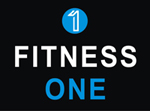
Before we dive into what healthy eating means, it’s important to explain why it matters.
First, food is what fuels you and delivers the calories and nutrients your body needs to function. If your diet is deficient in calories or one or more nutrients, your health may suffer.
If you eat too many calories, you may experience weight gain. People with obesity have a significantly increased risk of illnesses like type 2 diabetes, obstructive sleep apnea, and heart, liver, and kidney disease.
The quality of your diet affects your disease risk,longevity, and mental health.While diets rich in ultra-processed foods are linked to increased mortality and a greater risk of conditions like cancer and heart disease, diets comprising mostly whole, nutrient-dense foods are associated with increased longevity and disease protection
Do you have to follow a certain diet to eat healthy?
Absolutely not!
“Healthy eating” simply means prioritizing your wellness by fueling your body with nutritious foods.
Tips for healthy eating in the real world
Here are some realistic tips for you to get started with healthy eating:
- Prioritize plant-based foods.
Plant foods like veggies, fruits, beans, and nuts should make up the majority of your diet. Try incorporating these foods, especially veggies and fruits, at every meal and snack.
- Cook at home.
Cooking meals at home helps diversify your diet. If you’re used to takeout or restaurant meals, try cooking just one or two meals per week to start.
- Shop for groceries regularly.
If your kitchen is stocked with healthy foods, you’re more likely to make healthy meals and snacks. Go on one or two grocery runs per week to keep nutritious ingredients on hand.
- Understand that your diet isn’t going to be perfect.
Progress — not perfection — is key. Meet yourself where you are. If you’re currently eating out every night, cooking one homemade, veggie-packed meal per week is significant progress.
- “Cheat days” aren’t acceptable.
If your current diet includes “cheat days” or “cheat meals,” this is a sign that your diet is unbalanced. Once you learn that all foods can be a part of a healthy diet, there’s no need for cheating.
- Cut out sugar-sweetened drinks.
Limit sugary beverages like soda, energy drinks, and sweetened coffees as much as possible. Regularly consuming sugary beverages may harm your health
- Choose filling foods.
When you’re hungry, your goal should be to eat filling, nutritious foods, not to eat as few calories as possible. Pick protein- and fiber-rich meals and snacks that are sure to fill you up.
- Eat whole foods.
A healthy eating pattern should be primarily composed of whole foods like vegetables, fruits, beans, nuts, seeds, whole grains, and protein sources like eggs and fish.
- Hydrate the smart way.
Staying hydrated is part of healthy eating, and water is the best way to stay hydrated. If you’re not used to drinking water, get a reusable water bottle and add fruit slices or a squeeze of lemon for flavor.
- Honor your dislikes.
If you’ve tried a specific food several times and don’t like it, don’t eat it. There are plenty of healthy foods to choose instead. Don’t force yourself to eat something just because it’s considered healthy.

